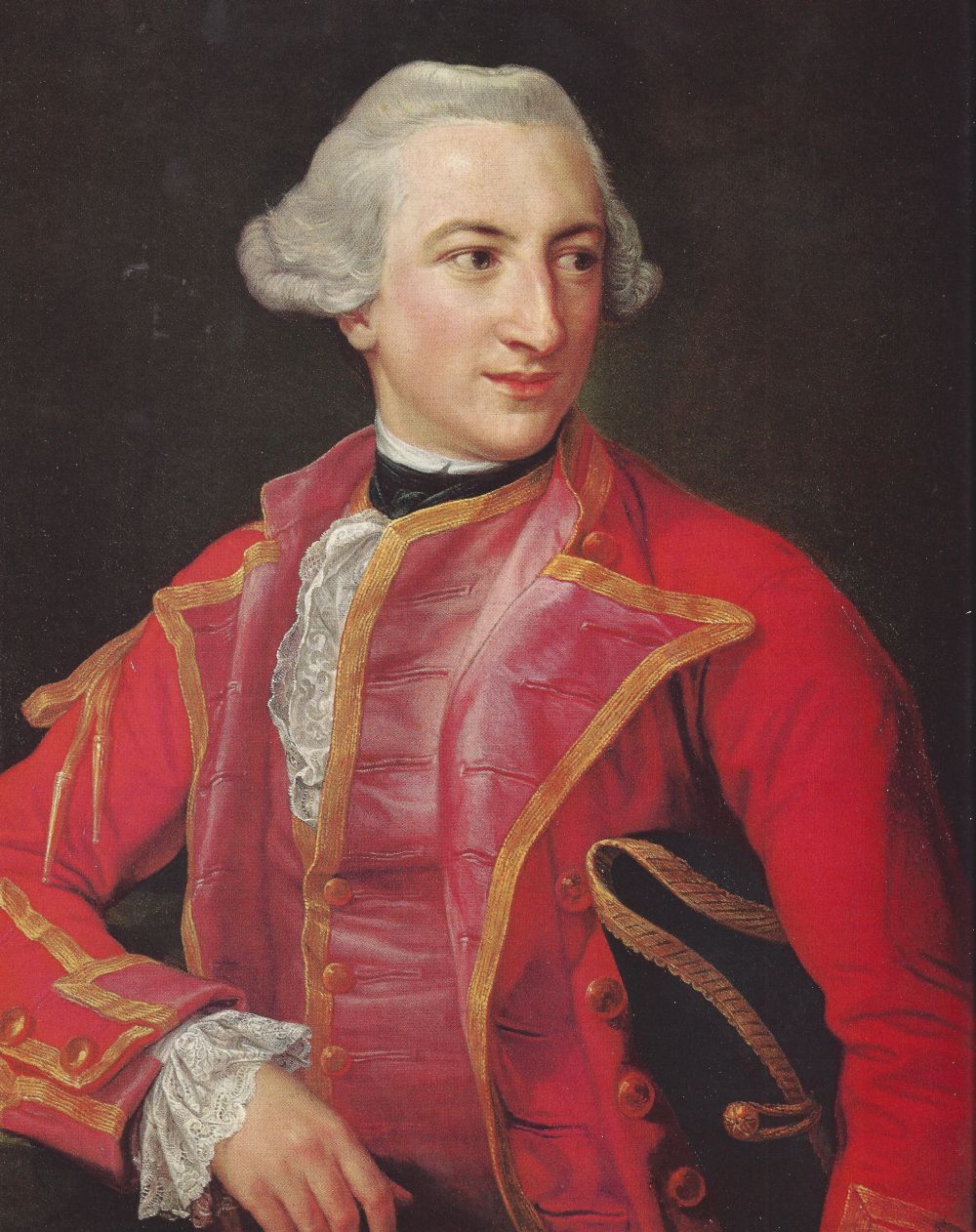
Lt. Gen. Hugh Percy, the 2nd Duke of Northumberland (1742–1817) was an officer in the British army and later a British peer. He fought at the battles of Lexington, Concord, Long Island, and Fort Washington during the American Revolution, and is widely credited with saving the British forces who were ambushed at Concord by rushing reinforcements to the battle.
Percy joined the British Army as a teenager and fought with distinction in numerous conflicts. A Whig who sympathized with the colonists to a degree, he resigned his command in 1777 due to disagreements with his superior, General William Howe. Percy returned to England with his priceless of maps of the battles in which he had fought. They still remain in the family.
Percy's portrait was painted by Pornpeo Girolamo Batoni in Rome, where the young officer stopped while making the Grand Tour before beginning his army career. The portrait may have been somewhat idealized. Percy was said to be physically unattractive, overly thin and with a large nose.
Yet "he was honorable and brave, candid and decent, impeccably mannered, and immensely generous with his wealth," writes the historian David Hackett Fischer.
